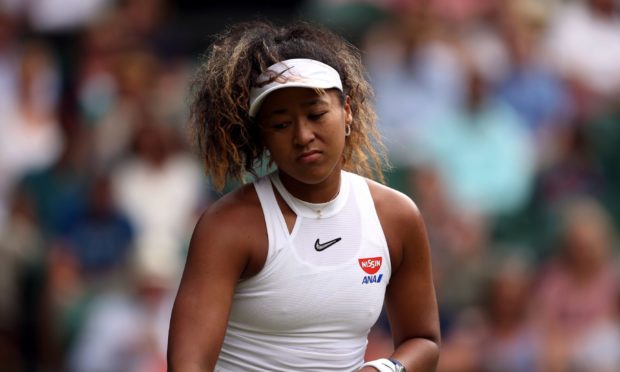The relationship between sports professionals and the media can be a testing one at the best of times but it seems as if Naomi Osaka is about to draw a line in the sand.
The four-time major champion and number two ranked women’s tennis player in the world is competing in the French Open this week.
But don’t expect her to talk about it.
Osaka announced on a post on social media on Wednesday that she will not participate in any news conferences during the tournament, claiming the decision was motivated by her mental health.
Explaining her decision she wrote: “I’ve often felt that people have no regard for athletes’ mental health and this rings very true whenever I see a press conference or partake in one.
“We’re often sat there and asked questions that we’ve been asked multiple times before or asked questions that bring doubt into our minds and I’m just not going to subject myself to people that doubt me.”
Osaka has won support from Venus Williams for her stance and has gone a step further insisting she hopes any fines which come her way for skipping a news conference will be put towards a mental health charity.
Considering she could be facing a five-figure punishment if she goes through with her blanket press ban clearly it is not a decision she has taken lightly.
It will be interesting to see if Osaka remains true to her word for the duration of the tournament, especially if she goes all the way to the final and wins the women’s singles title.
The irony of her non-compliance setting tongues wagging after winning a tournament would be something.
I’ve never met Osaka and I don’t expect our paths to cross anytime soon unless she fancies a visit to Westburn Park for a knockabout but I have to say I’m intrigued by what is becoming a growing trend in sport – the avoidance of scrutiny.
This multiple major winner is in the fortunate position of being able to afford the fines for not speaking although it is hard to escape that nagging voice in the back of my head questioning whether her stance would have been the same when she started her career.
I’m sure there are many other professionals out there who wish they could follow suit but the big question is where does this end?
Her insistence the line of questioning is boring, repetitive or negative is valid. I could make the same argument so many answers fall into the same category.
Believe me, it can be like pulling teeth at times trying to get a straight answer to a straight question and I have lost count of the number of times a fan has accused me of giving a manager, chairman or player an easy ride with softball queries.
— NaomiOsaka大坂なおみ (@naomiosaka) May 26, 2021
My colleagues in news can quite easily answer for themselves but as someone who covers sport I can tell you the spectrum can be a long and varied one.
I can cover a European Tour event and be given access to the best players in the world. They travel across the globe week to week but know the value of giving up five minutes of their time. It keeps sponsors happy for starters and as we know sponsorship is key to earning bigger prizemoney.
By contrast, I can cover a team in the Scottish Premiership and find it near impossible trying to arrange five minutes on the phone with a manager or player. Covid has done nothing to help improve that relationship between reporter and the clubs on their doorstep.
If we’re moving towards a new arrangement where only good news stories and victories will be deemed worthy of comment then we’re on the road to ruin.
Trust between athletes and journalists are forged on the writer’s ability to describe why something went right and wrong, sometimes delicately.
Selectively ignoring the negative for positive spin only is not journalism – it’s public relations.
If you do not like the question then it is your right to not answer it. But at least let us ask it first.
